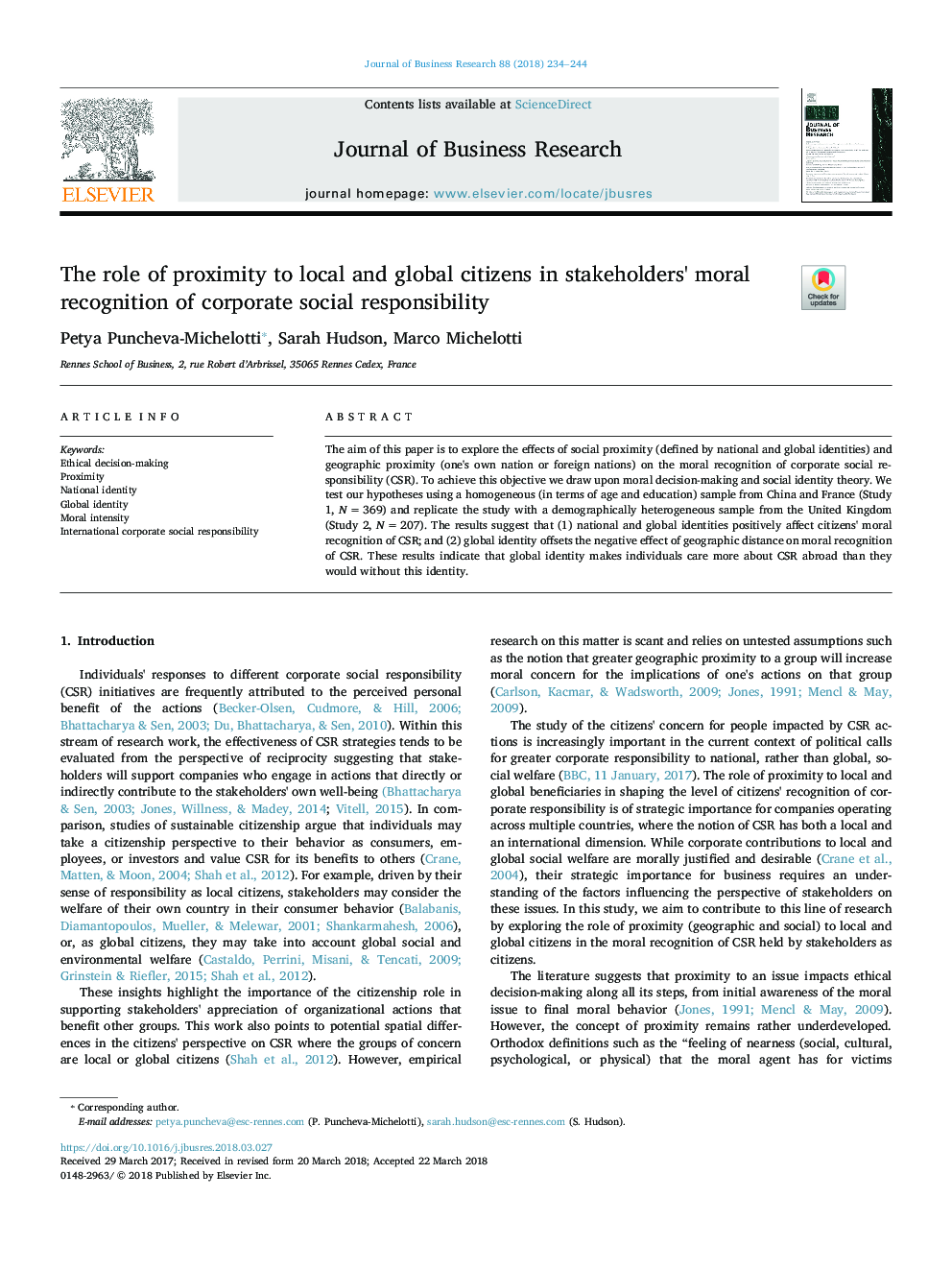| Article ID | Journal | Published Year | Pages | File Type |
|---|---|---|---|---|
| 7425318 | Journal of Business Research | 2018 | 11 Pages |
Abstract
The aim of this paper is to explore the effects of social proximity (defined by national and global identities) and geographic proximity (one's own nation or foreign nations) on the moral recognition of corporate social responsibility (CSR). To achieve this objective we draw upon moral decision-making and social identity theory. We test our hypotheses using a homogeneous (in terms of age and education) sample from China and France (Study 1, Nâ¯=â¯369) and replicate the study with a demographically heterogeneous sample from the United Kingdom (Study 2, Nâ¯=â¯207). The results suggest that (1) national and global identities positively affect citizens' moral recognition of CSR; and (2) global identity offsets the negative effect of geographic distance on moral recognition of CSR. These results indicate that global identity makes individuals care more about CSR abroad than they would without this identity.
Related Topics
Social Sciences and Humanities
Business, Management and Accounting
Business and International Management
Authors
Petya Puncheva-Michelotti, Sarah Hudson, Marco Michelotti,
